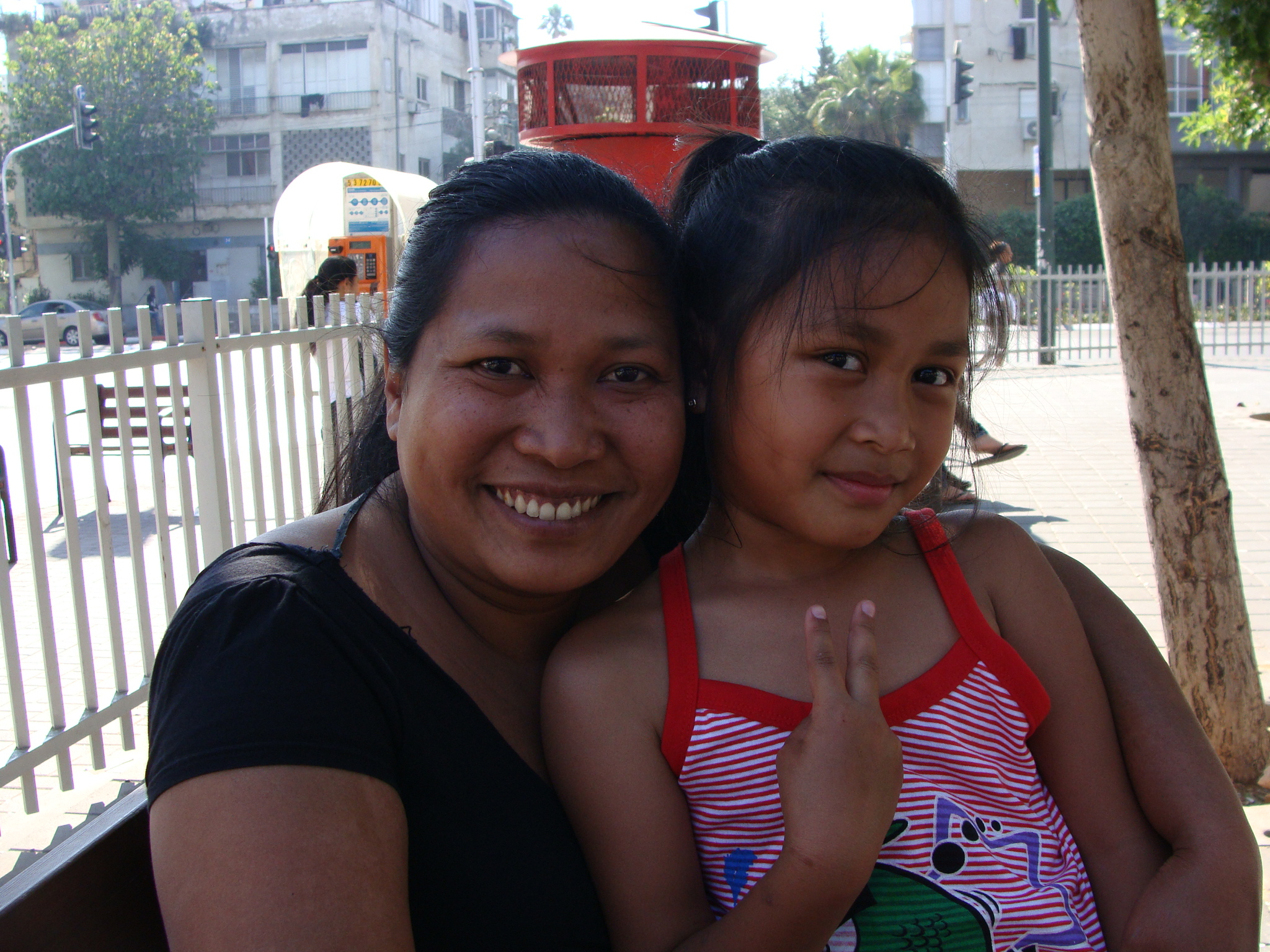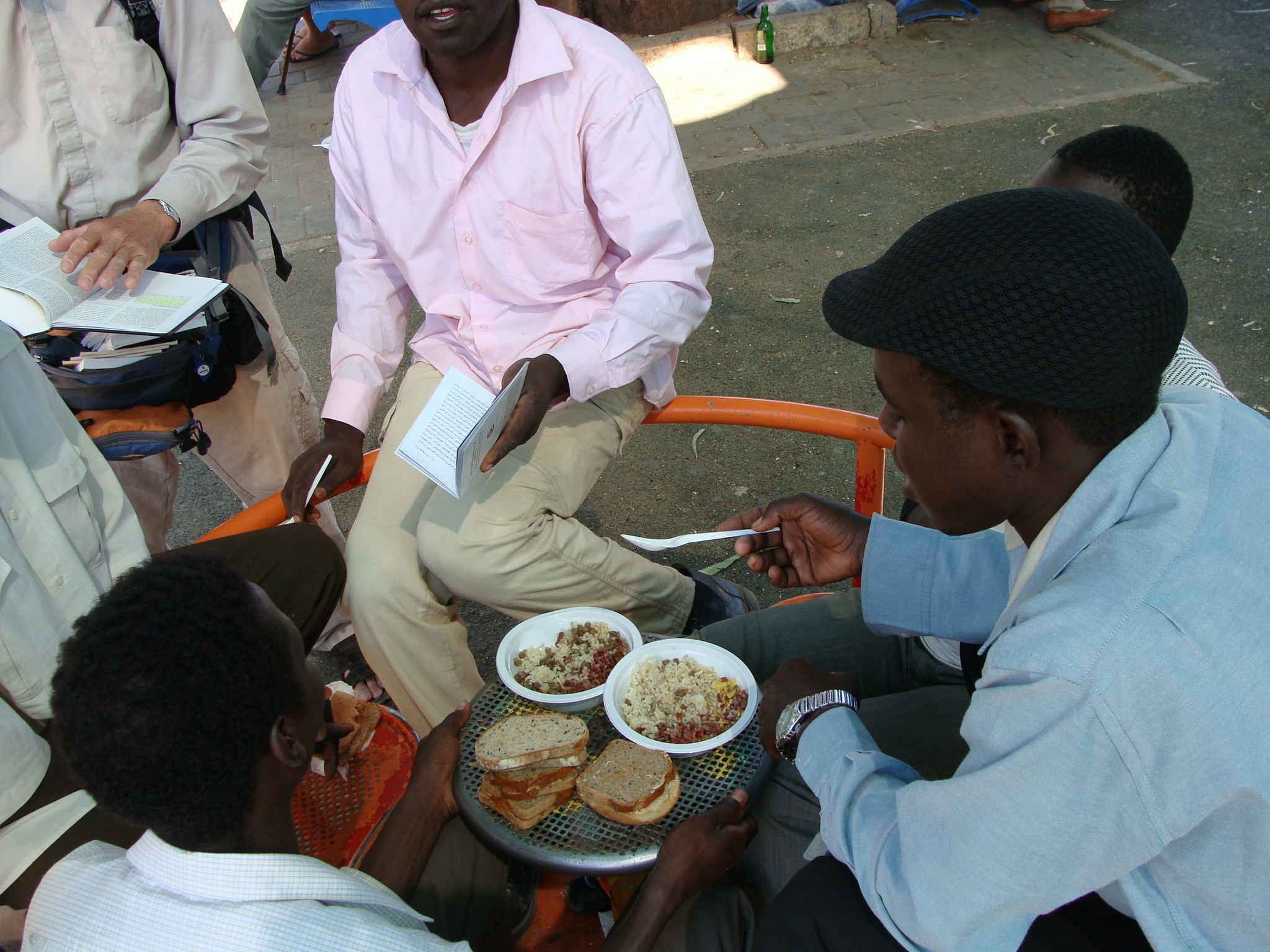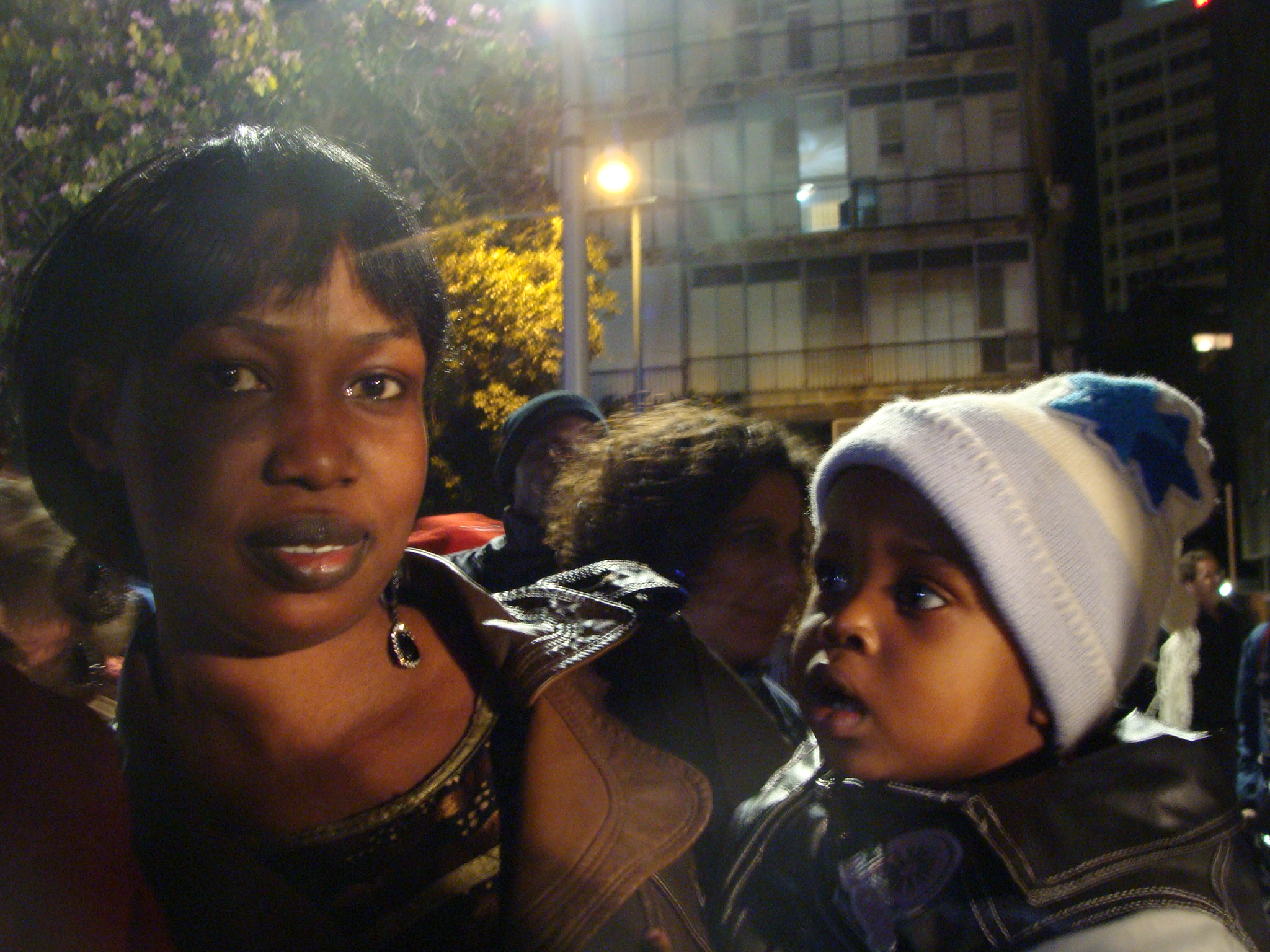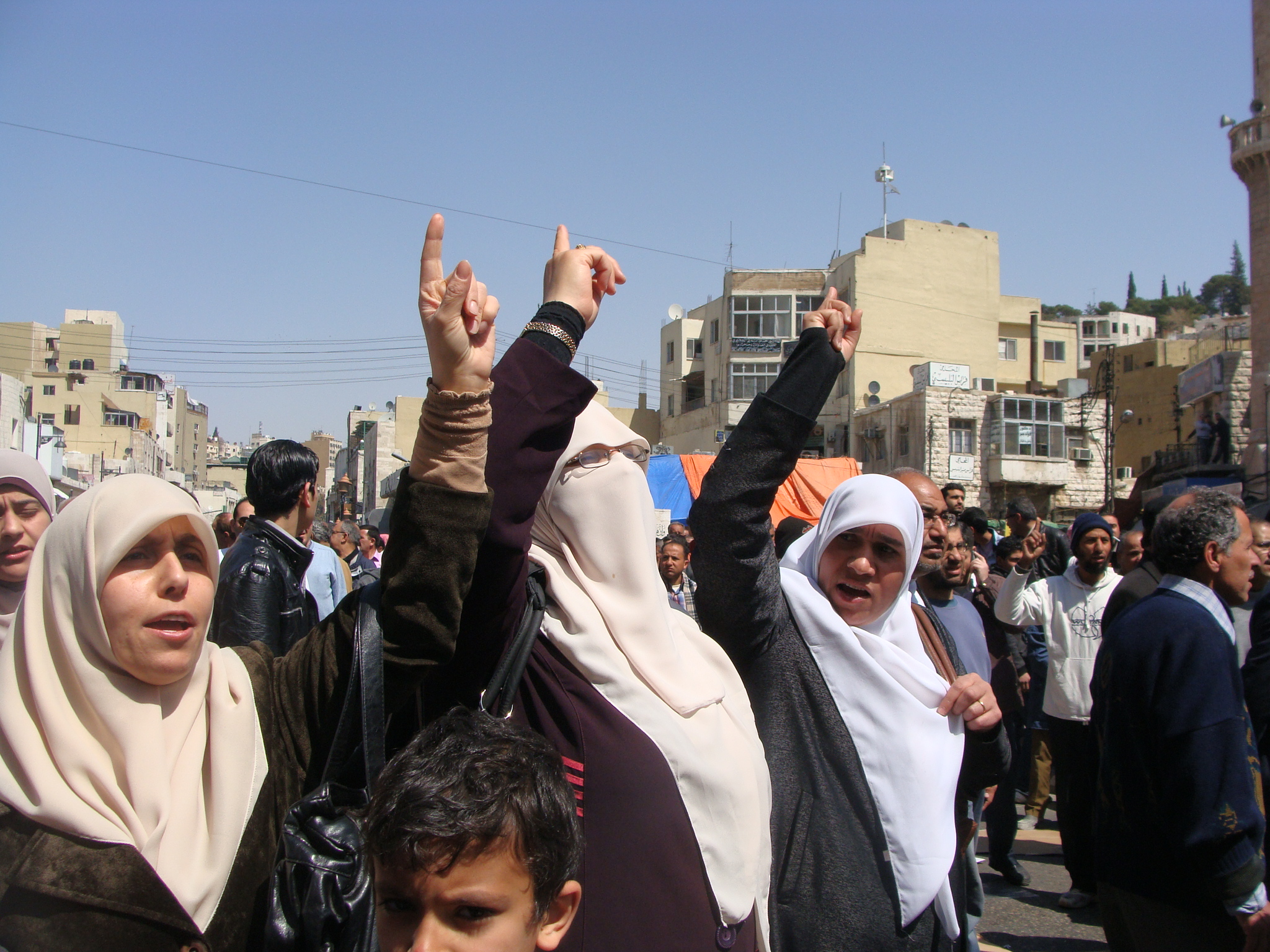Inter Press Service, May 31, 2012
Hundreds of thousands of families — from Palestinians to Southeast Asian migrant workers to African refugees — struggle under Israeli policies that seek to limit the number of non-Jews within Israel and in the areas it occupies.
Sitting in the living room of her home in East Amman, Jordan, Sabah Othman flips through the photos of her two daughters’ weddings. “I love all of my children,” she said, in Arabic. “But my girls are my best friends.”
Due to Israeli policies, however, Othman’s relationship with her daughters now takes place on the phone.
Othman’s daughters live with their Palestinian husbands in Shuafat refugee camp in Israeli-occupied East Jerusalem. Because Othman’s husband is from Hebron, all of Othman’s Jordanian-born children hold West Bank identification cards and can enter the West Bank without a visa.
But Othman holds only a Jordanian passport, so she must apply to the Israeli consulate in Amman to enter the West Bank, including East Jerusalem. In the past three years, she has applied six times and has been rejected four times. The two times Othman received a visa, she was permitted to visit for two weeks.
Most tourists get a three-month visa issued on the border.
Israeli officials have admitted that the state has no security claim against Othman, who is a mother of five and a grandmother of eight. Numerous inquiries at the Ministry of Interior, the Israeli consulate in Amman, and the Ministry of Foreign Affairs revealed that Othman’s visa requests were denied due to questions about her “migration intentions.”
Othman denied that she intended to leave her husband, sons and grandchildren in Amman and migrate to Shuafat Refugee Camp. But Israel’s concerns that she would do so point to the state’s obsession with demographics and maintaining a Jewish majority.
Sam Bahour of the Ramallah-based organization Right to Enter explained that, under Israeli law, West Bank ID holders can help first degree relatives secure residency in the West Bank. In practice, however, things are not so simple.
Bahour, who was born and raised in the United States, married a West Bank Palestinian in 1994 and immediately applied for an ID. “The Palestinian Authority wasn’t even here yet [and the Israelis] refused to deal with it.”
Since the occupation of the West Bank and Gaza began in 1967, Israel has purged more than 150,000 Palestinian residents from the population registry and has ignored hundreds of thousands of requests like Bahour’s for family unification. Between 2000 and 2005 alone Israel received 120,000 such applications. The requests were simply not processed.
A survey conducted in 2005, on behalf of the Israeli rights group B’Tselem, estimated that more than 640,000 Palestinians in the West Bank and Gaza had a parent, sibling, child, or spouse who was unregistered.
Because Israel controls the population registry for the West Bank and Gaza, the Palestinian Authority cannot help.
“The PA is just the mailman,” Bahour says, explaining that Palestinians submit their applications to the PA, which delivers them to Israel and then distributes the Israelis’ answers.
After 15 years of living in the West Bank, Bahour received an ID in 2009. His was one of the 33,000 applications Israel processed to reward the PA for taking part in “peace talks” — turning the human right to family into a political card.
Bahour believes that Israel’s treatment of Palestinians and their family members reflects a “policy of fragmentation” designed to pressure the population into emigrating.
Othman’s daughter, Amira Dana, has begun to look for work abroad. She hopes to move to a place where her family members can visit her whenever they like.
Dana mourns the important life moments she has been unable to share with her mother, like the births of her three children.
“I really wanted her there next to me. I didn’t want anyone there except her,” Dana said. But Israel denied Othman entry.
Inside present-day Israel, migrant workers’ children and African asylum seekers bear the brunt of Israel’s demographic war.
The state ignores African refugees’ requests for asylum. Prime Minister Benjamin Netanyahu has called them a “concrete threat to the Jewish and democratic character of the country” and even though Sudanese and Eritrean citizens cannot be deported to their home countries, Israel does not provide them with work visas.
Speaking to Israel’s Army Radio recently, Interior Minister Eli Yishai said, “Jobs will root them here.” As a result, many of Israel’s approximately 45,000 African asylum seekers are unemployed and homeless.
Mimi Hylameshesh, a 28-year-old refugee from Eritrea, cleans houses for a living. She makes just enough to rent a small apartment in south Tel Aviv and to send her daughter to daycare. While Hylameshesh manages to feed her child, she does not always have the money to buy food for herself.
In another attempt to preserve its Jewish majority, the state is in the process of deporting hundreds of families of migrant workers, including Israeli-born children. Until now, all of the children who have been expelled have been aged four and under. But members of the organization Israeli Children explain that older kids could be arrested and expelled during the upcoming summer break.
Angie Robles, 56, has been taking care of her 15-year-old grandson since 1999, when his father died and his mother abandoned him. The boy was born here, attends public school in Tel Aviv, celebrates the Jewish holidays, and speaks fluent Hebrew.
Despite the fact that he met all of the criteria for “naturalization” in both 2005 and 2010 — when Israel opened “one-time” windows for the children of undocumented migrant workers — his applications were denied. He faces expulsion to the Philippines, his parents’ home country, a place he has never visited.
Rose Fabianas, 32, and her six-year-old daughter, Danielle, also face imminent deportation to the Philippines.
Fabianas sits on a park bench in south Tel Aviv, watching her daughter play on the swings with friends. She calls to Danielle and the girl darts over. Danielle talks, shyly, about her life in Israel, where she was born. Her favorite subject is mathematics, she said in fluent Hebrew, and her favourite holiday is Purim.
Fabianas remarked that Danielle used to live in constant fear of the immigration police. When someone knocked on the door, Danielle would beg her mother not to answer. “But now she says, ‘Ima [mom], I’m already big, they’re not going to take me’ … She’s very settled.”



